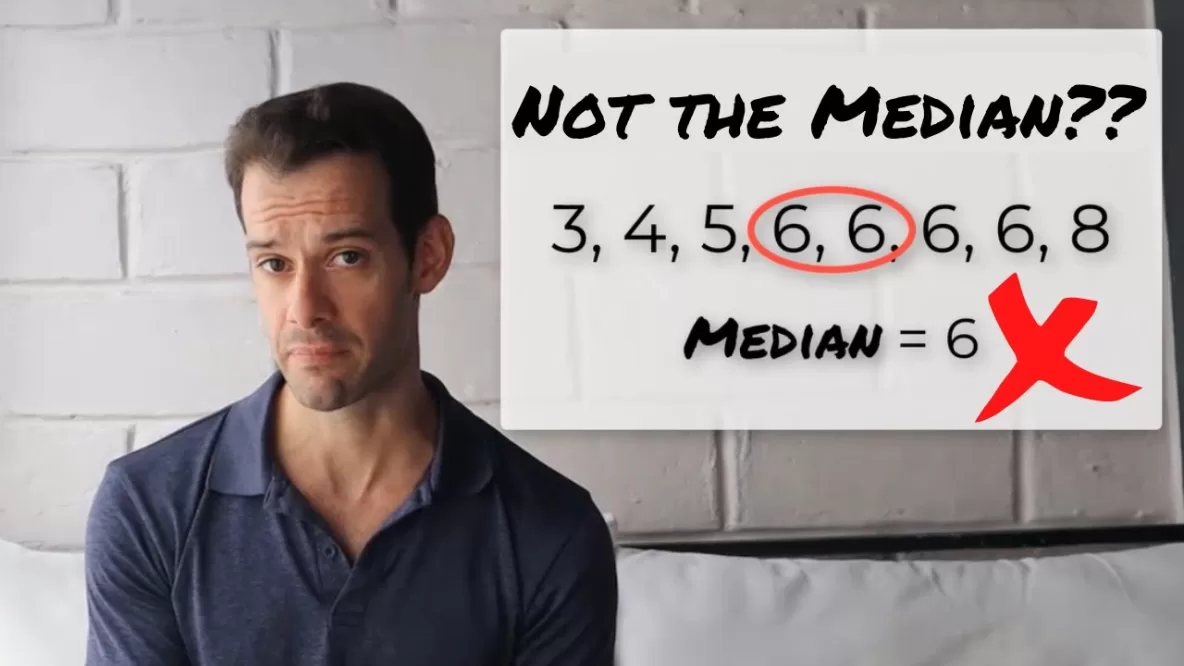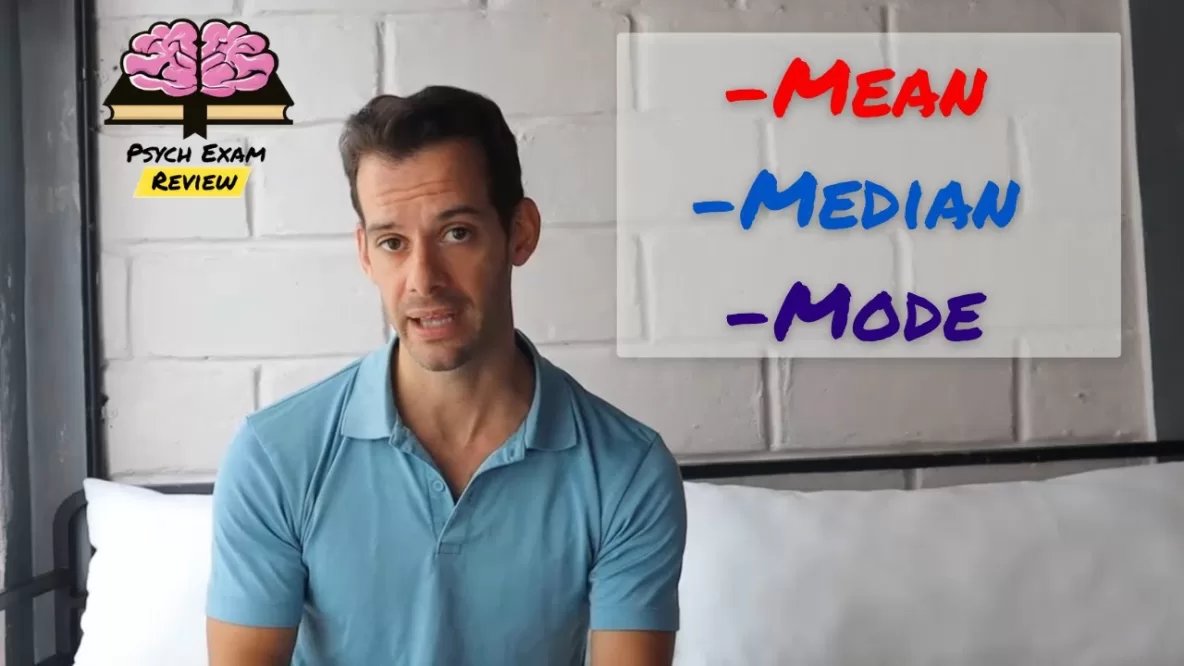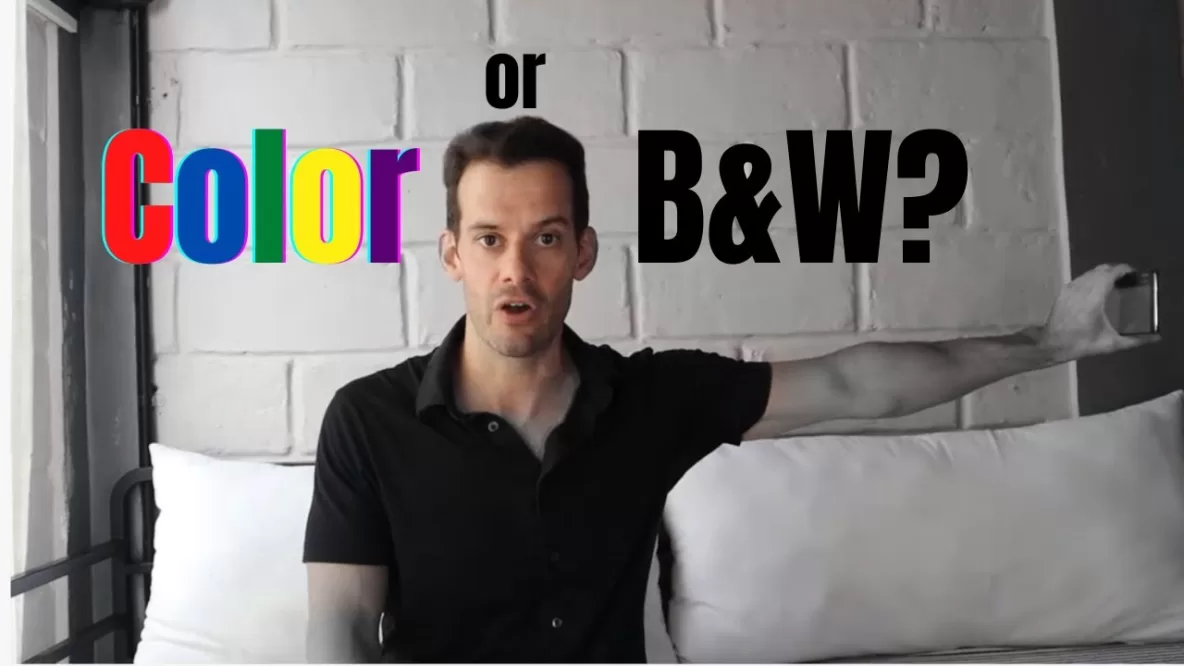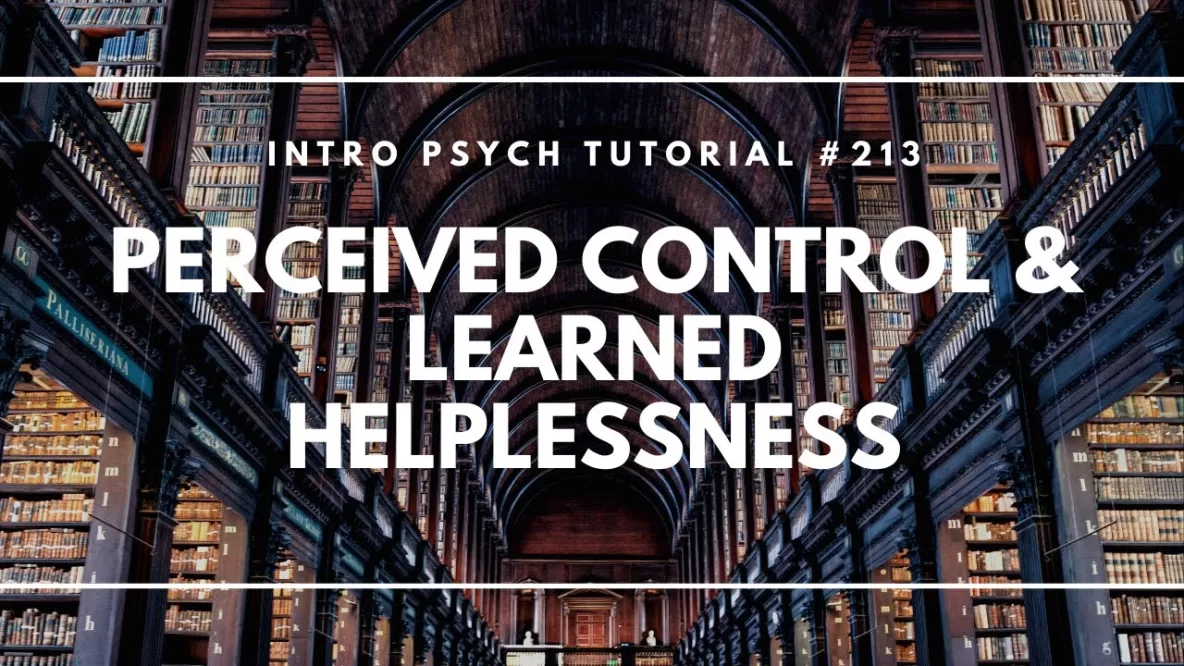In this video I explain simple ways of describing the dispersion of data that can be ordered or ranked. These are the range, the interquartile range, and the semi-interquartile range. I also briefly describe a more precise method for calculating … Read More
Dispersion for Nominal Data: The Variation Ratio
In this video I describe how we can describe dispersion or variability in nominal data by calculating a variation ratio. This is a simple measure of spread that tells us the frequency of scores that differ from the mode, which … Read More
How to Find the Precise Median (Interpolated Median)
In this video I explain how to find the precise median for a continuous variable with many repeated scores. I walk through an example of this that can be solved visually, then use this example to derive the formula for … Read More
Understanding Central Tendency
In this video I explain the strengths and limitations of the 3 measures of central tendency: the mean, the median, and the mode. This is part of a key theme of statistics, which is the importance of the choices researchers … Read More
The Ordinal vs. Interval Debate in Psychology
In this video I describe how psychologists and social scientists often treat ordinal data as if it were interval data, which is a cause of some debate between pure statisticians and more pragmatic researchers. I discuss why this may or … Read More
Is Peripheral Vision in Color or Black and White?
In this video I discuss peripheral color vision, including the common misconception that peripheral vision is completely black and white. By looking at the distribution of rods and cones throughout the retina, we can see that color vision extends to … Read More
Scales of Measurement or Types of Data
In this video I describe the 4 scales of measurement proposed by Stanley Smith Stevens, which have become the standard way of defining types of data. These include nominal, ordinal, interval, and ratio. I discuss the defining features of each, … Read More
Stress & Social Hierarchy
In this video I discuss the relationship between the stress response and the social hierarchy. While high status in a hierarchy can be associated with greater control and less stress, it can also be the case that high status positions … Read More
Perceived Control & Learned Helplessness
In this video I discuss appraisal, perceived control, and learned helplessness. While primary appraisal refers to identifying whether something represents a threat, secondary appraisal refers to determining if one can manage or control a stressor. Stressors that can’t be managed … Read More
Stress, Personality, & Heart Disease
In this video I discuss the relationship between stress, personality, and heart disease. Meyer Friedman and Ray Rosenman proposed that Type A personality, characterized by competitiveness and hostility, was associated with 7x more heart disease than Type B personality, characterized … Read More










